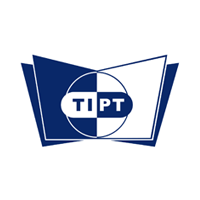
The blockchain technology behind Bitcoin is being touted as the way forward in supply chain sectors. Blockchain allows a network of users to compile a secure sequence of data entries, known as ‘blocks’. Blockchain cryptography authorizes users to view blocks and add new ones, but no previous block in the chain may be altered. For suppliers around the world, blockchain might be the next big step, enhancing the reliability of the traditional supply chain.
Blockchain could make supply industries more secure, with asset transfers recorded as data ‘blocks’ visible to authorized parties around the world. Providing a permanent transaction ledger, blockchain could help the pharmaceutical industry solve longstanding problems of stolen and counterfeited medicines. The prospect is an exciting one for quality assurance professionals, who could now be part of a faster and safer pharmaceutical delivery chain.
If you are considering a career in pharmaceutical quality assurance, read on to learn how blockchain could empower your future work.
Blockchain Could Eliminate Criminal Activity Along Supply Chains
Blockchain has been introduced in a variety of sectors, helping companies track everything from pork to rare diamonds. With worldwide supply networks, the pharmaceutical industry is eyeing blockchain as a potential remedy for medical misappropriation and counterfeit. In 2010, the World Health Organization placed the sale of fake drugs at an estimated $75 billion, up by 90% in five years.

Supply chain problems have led governments to legislative action, including the EU’s Falsified Medicines Directive (2013-2019) and the US’s Drug Supply Chain Security Act (2013-2023). With data indicators for the timeliness, quality and payment of each delivery, pharmaceutical blockchains might help the industry crack down on criminal activity. Blockchain tech would also protect pharmaceutical quality standards, helping lab-tested products arrive unchanged to medical clients.
Blockchain Could Improve Service from Manufacture to Delivery
In addition to reducing crime, blockchain might help pharmaceutical manufacturers ensure more effective medical deliveries. While blockchain might not be necessary for single businesses – where a company database might perform the same function – it helps establish a common ledger across disparate partnering entities. In the pharmaceutical industry, this could mean closer communication between manufacturers, shippers and suppliers.
This enhanced tracking of medical assets would empower the work of pharmaceutical program graduates tasked with ensuring the quality of medicines leaving the laboratory. From manufacturers to consumers, blockchain could keep quality assurance professionals informed, ensuring the supply process lived up to the high standards of the laboratory.
Pharmaceutical Program Graduates Could Strengthen Ties With Customers
Pharmaceutical quality assurance professionals help companies meet industry standards for consumer health and safety. Quality assurance is thus critically important for pharmaceutical transparency and public trust. With the support of blockchain, quality assurance personnel would be afforded a more direct channel to their medical clients.

Eliminating possible tampering or contamination, blockchain could help connect consumers to the quality assurance professionals who test their medications. Blockchain could also help manufacturers disseminate life-saving medications and order recalls more quickly. Showing great promise, blockchain quality assurance could come sooner rather than later to the pharmaceutical industry.
Are you interested in learning about evolving technologies in a quality assurance program?
Find out how the Toronto Institute of Pharmaceutical Technology can help.
